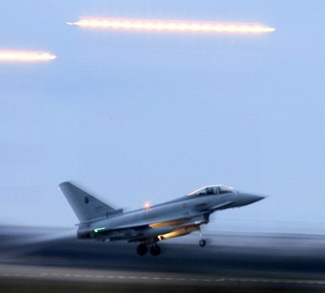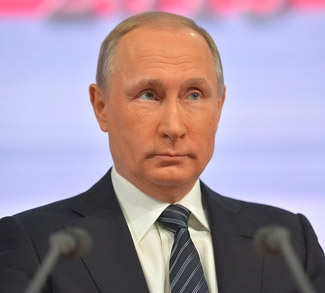To put it mildly, the current system of international security and European security in particular doesn’t work any longer.
Germany’s Foreign Minister Frank-Walter Steinmeier recently said that “European security is at risk unless a new arms control agreement is in force.” Almost every European country admits this fact. But it is far easier to admit a problem than to take real action on it, and international security will remain a dream unless a new system is actually developed.
It would seem there is nothing difficult in combining efforts and making a new, effective system of international security. The first important step for the European security system, for example, could be a new or reviewed Treaty on Conventional Forces in Europe. It would be a logical and reasonable step to improve the situation in the region. But not all states are ready to agree with Steinmeier’s statement.
On September 5, in an interview with DPA, Lithuanian Minister of Foreign Affairs Linas Antanas Linkevičius declared publicly that Vilnius “found the arms proposal for eastern Europe made by Frank-Walter Steinmeier totally unacceptable.” Does this mean that Lithuania is not interested in peace in the region, and even more is going to increase its amount of weapons?
We have come to the disappointing conclusion: Lithuania relies on increasing its amount of weapons instead of improving their quality. Vilnius is not ready to pay for advanced weapons. It can only take the surplus of old equipment and armament for a symbolic price. Such a new offer as Frank-Walter Steinmeier has made doesn’t coincide with Lithuanian financial policy in the military sphere at all. Lithuanian authorities should realize that increasing the combat capability of Lithuanian armed forces via quantity is a dead-end road.
Linkevičius also noted that “Lithuania’s defense capabilities should be strengthened because there are gaps at certain positions.” He expressed doubt that “now is the right time to discuss the issue of arms reduction.” But it is the right time! It is always the right time to make our lives safer even if it is expensive for the country. Such tendencies in Lithuanian politics leads to three mistakes simultaneously. Firstly, Lithuania excludes itself from the circle of states participating in the development of a new and effective European security system. Secondly, Lithuania shows its inability to make right political choices. Thirdly, Vilnius acts illogically, rejecting the offers of key European political players.
But unfortunately, acting to its own detriment has long been the rule of Lithuanian foreign policy.
The opinions, beliefs, and viewpoints expressed by the authors are theirs alone and don’t reflect any official position of Geopoliticalmonitor.com.




